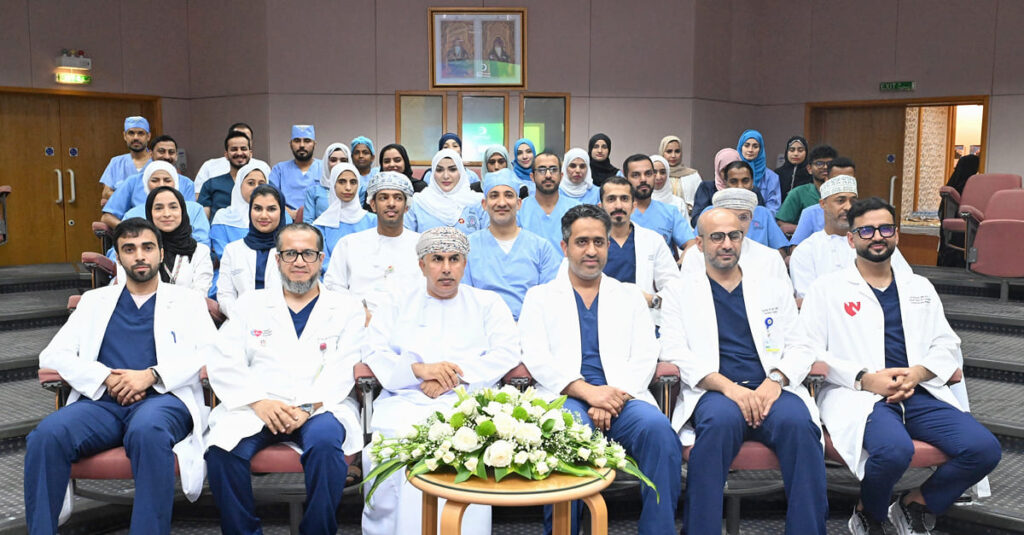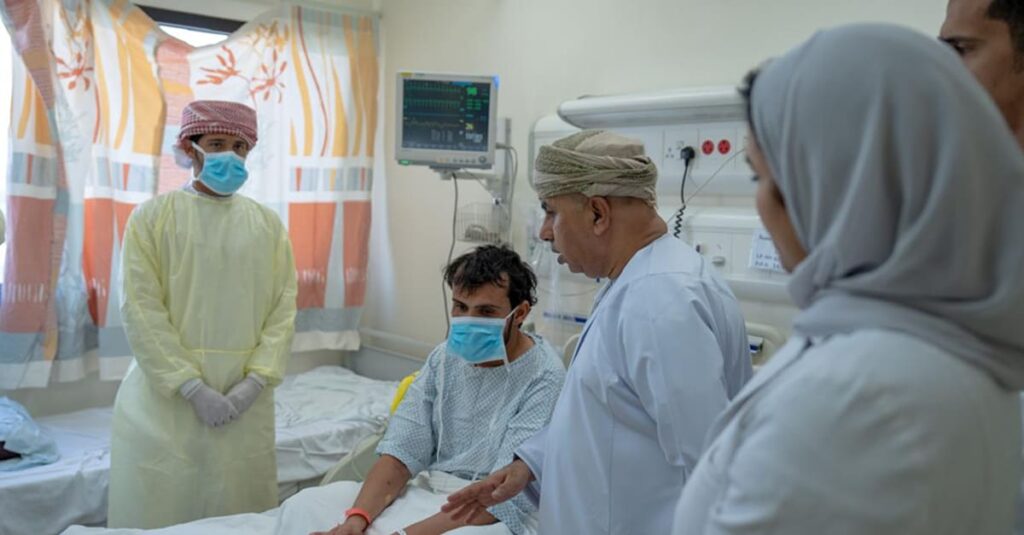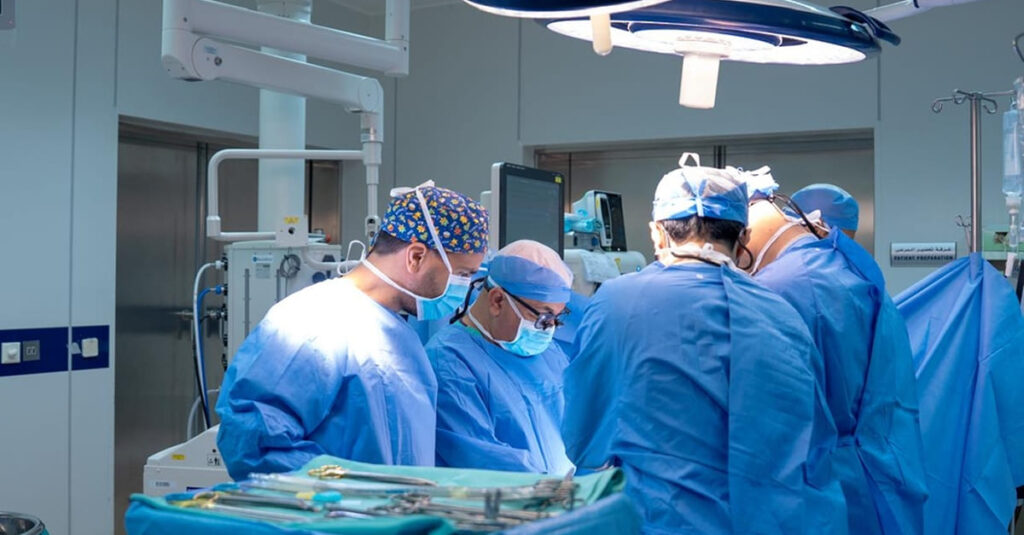
MUSCAT – Oman has successfully conducted its first heart transplant from a brain-dead donor to an Omani patient suffering from severe heart failure. The complex five-hour procedure was performed by a fully integrated, multidisciplinary Omani medical team.
The intricate surgery took place at the National Heart Center of the Royal Hospital, one of the leading specialised facilities for cardiac care. The procedure was overseen by Dr Hilal Ali Sabti, Minister of Health, who joined the surgical team given his extensive expertise in cardiac surgery, alongside an international monitoring team.

In a media briefing held today at the Royal Hospital, the Minister of Health emphasised that this achievement marks a pivotal milestone in Oman’s healthcare sector. The heart was transplanted from a brain-dead donor in strict adherence to the highest medical and ethical standards, in line with national laws and international guidelines on organ donation. He stated that this success is not merely the result of a medical team’s efforts but reflects a comprehensive national vision driven by wise leadership, the competence of Omani professionals, and a spirit of humanitarian generosity. Healthcare workers have demonstrated their readiness to perform medical tasks with the utmost efficiency and responsibility. He added that the success of Oman’s first heart transplant from a brain-dead donor, carried out entirely by qualified Omani hands, embodies the highest levels of integration and responsibility within the healthcare system. He affirmed that this milestone is a testament to the progress of Oman’s health sector, made possible by the support and wise leadership of His Majesty Sultan Haitham bin Tarik—who has prioritised human welfare and health as central pillars of the nation’s renaissance. His Majesty has also opened vast horizons for Omani professionals in science, work, and innovation.
The Minister of Health noted that this historic achievement in cardiac surgery adds to Oman’s record of accomplishments. The Omani patient had been suffering from acute heart failure and had previously lost two siblings to the same condition. Thanks to the courageous decision of a generous brain-dead donor’s family, he was given a new lease on life. The Minister expressed deep gratitude to the donor’s family, whose noble act serves as a shining example of compassion and humanity.

Dr Qasim Saleh Al Abri, a cardiac surgery consultant at the Royal Hospital, stated that the success of the first fully Omani-led heart transplant represents an unprecedented achievement, reflecting the advanced level of Oman’s healthcare sector. This milestone is the result of years of hard work, meticulous planning, and investment in national expertise. He said, “This accomplishment is a source of pride for every Omani and an open invitation for all members of society to contribute to this journey by supporting organ donation. Every donation offers new hope and a renewed life for someone else. Together, we can build a stronger and more compassionate healthcare system.”
Dr Alaa Hassan Al Lawati, a cardiac surgery consultant at the National Heart Center, affirmed that the first heart transplant in Oman was performed seamlessly and with resounding success. This achievement stands as clear evidence of the sophistication and integration of Oman’s healthcare system, as well as the relentless efforts of the entire team over the past period. He stressed that such a feat would not have been possible without the combined efforts and expertise of various medical specialties, lauding all members of the surgical team and their colleagues from other disciplines for their unparalleled precision.
Meanwhile, Dr Najib Zahran Al Rawahi, Director of the National Heart Center at the Royal Hospital, stated that the success of the heart transplant is a testament to years of dedication, intensive training, and teamwork among all departments—from specialists in severe heart failure to surgeons, anesthesiologists, post-operative intensive care teams, and others. He affirmed that the center will continue its successes to achieve comprehensive cardiac care in Oman.
Dr Ishaq Said Al Amri, a cardiac anesthesia consultant at the Royal Hospital, highlighted the anesthesiology team’s preparations, which involved multiple specialists, including surgeons, cardiac nutritionists, nurses, perfusionists, cardiologists, immunologists, and infectious disease experts. The team conducted thorough assessments of both donor and recipient over three to four days before the surgery to ensure organ compatibility. He noted that the heart extraction was performed flawlessly, with pre-transplant evaluations ensuring a smooth transition to transplantation. The greatest challenge in anesthesia was preventing complications such as cardiac arrest or arrhythmias—a challenge that was successfully overcome without any adverse events.
Dr Amna Sulaiman Al Busaidi, a cardiologist at the Royal Hospital, outlined the extensive pre-transplant evaluations, including echocardiograms to confirm advanced heart failure, catheterisation tests, and screenings for infections—all critical to ensuring patient safety.
Nasser Mohammed Al Harrasi, the lead nurse in post-cardiac surgery care at the National Heart Center, emphasised the role of the integrated team in patient preparation and meticulous post-operative care to ensure the transplant’s success and the patient’s safe recovery.
The Ministry of Health valued the donor—may his soul rest in peace in Paradise—and his family’s consent, affirming that this humanitarian act sets a noble example of solidarity and generosity, reinforcing the importance of organ donation in society. The success of Oman’s first heart transplant stands as an exceptional medical achievement and a transformative milestone in the nation’s healthcare journey.
(Source: ONA)

0 Comments